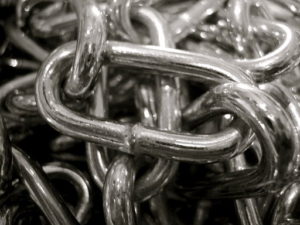 Over the past couple of months on our blog, we’ve been focusing a little bit on less credible search engine optimization (SEO) tactics, like link buying, and especially on the Google penalties that can come from using them. However, without a specific example to help understand how the process of going from black hat SEO to a heavily penalized website can work, it can be difficult to see how it all impacts your law firm’s own SEO strategy.
Over the past couple of months on our blog, we’ve been focusing a little bit on less credible search engine optimization (SEO) tactics, like link buying, and especially on the Google penalties that can come from using them. However, without a specific example to help understand how the process of going from black hat SEO to a heavily penalized website can work, it can be difficult to see how it all impacts your law firm’s own SEO strategy.
Luckily, while nearly all of the Google penalties are handed out to small players online, a few manage to find businesses that are large enough to make the New York Times.
J.C. Penney’s Online Success
Throughout the 2010 holiday season, J.C. Penney was conspicuously at the top of Google’s organic search rankings for nearly every product imaginable. Their online marketing team had done such a good job that they were even beating other companies in searches for their own brand: A search for “Samsonite carry on luggage” found J.C. Penney at the top, rather than Samsonite’s own site.
The Importance of Link Building for SEO
It’s common knowledge in the SEO world, and even outside of it, to a lesser extent, that one of the best ways to improve a site’s online prominence is to get other websites to link to it. If another web site links to your page, it gives a signal to search engines that your site has a good enough reputation to warrant another site sending some traffic there. Therefore, the more links that your site can get, the better it will rank online, especially if those links come from sites that a search engine sees as being trustworthy.
Of course, this is something that can easily be abused, and that was exactly what J.C. Penney was doing.
J.C. Penney’s Link Building Scheme
Because of their importance for improving a site’s ranking, of course there’s a marketplace for links. They can be bought and sold. And that’s exactly what J.C. Penney was doing.
No fewer than 2,015 other websites linked to the portion of J.C. Penney’s website dedicated to dresses. The vast majority of these links came from websites that had nothing else. Further investigation found that the owners of these sites were being paid to host these links.
Google Penalizes J.C. Penney
Following the expose by the New York Times, Google came down hard on J.C. Penney for their black hat link building scheme. Within the span of hours, J.C. Penney’s online ranking for some keywords fell from number one to well past the fifth page.
While the repercussions are typical of a Google penalty, the time that it took to detect J.C. Penney’s link building scheme was not. The fact that J.C. Penney got away with its solid rankings for so long was enough to raise conspiracy theories: J.C. Penney, after all, was one of the biggest advertisers on Google, spending $2.46 million a month on Google’s paid ads in 2010.
J.C. Penney’s response to the penalty was, of course, to let go of its online marketing firm and claim ignorance of their practices.
Legal Blogging Is the Safe SEO
J.C. Penney’s link building scheme lasted a surprisingly long time, but still ended the same way that all black hat SEO methods end – with a devastating search engine penalty that kills web traffic. While credible SEO methods like legal blogging and social media won’t net your law firm’s website with the immediate results that buying links will get you, the results are something that you can count on.